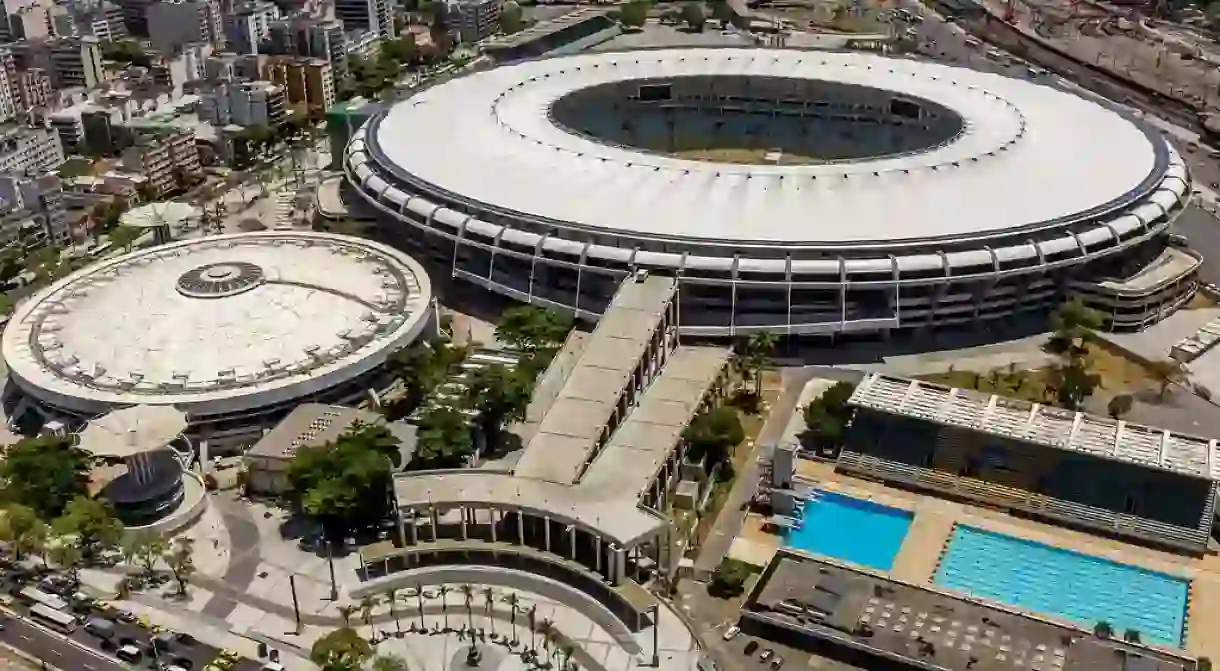How Brazilians Feel About The Rio Olympics

The 2016 Summer Olympic Games in Rio de Janeiro started Aug. 5, 2016, with competition beginning the following day. The Games have been met with mixed opinions from the citizens of Rio, known as Cariocas, and have created a polarized perspective. We take to the streets of Rio to get the different points of views of the people here.

Thais Cardoso, a 24-year-old student, says she loves the changes that have happened in Rio as a result of the Olympic games:
“Rio de Janeiro changed to receive the Olympics. I thought that I wouldn’t see any good changes, but I was really mistaken.
The city center of Rio is incredible, totally revitalized, and the space that was forgotten and hardly enjoyed, has had its beauty and joy developed. The space with street art, sports, and a lot of food trucks near the bay of Guanabara was a great idea. They gave life to a place so beautiful, but was left aside.
I hope it continues like this after the Olympics and that the area isn’t forgotten.”

Luciana Innecco, 24, is a marketing assistant and has a balanced point of view, seeing how the strong views on social and political problems prior to the Games were lessened once the Olympics started:
“Honestly, I wasn’t excited about the Olympic Games in Rio. Our city is facing problems such as violence, corruption and economic crises, so it wasn’t a great time to have such a big event.
However, the opening ceremony surprised and inspired us, Cariocas and Brazilians. The Olympic spirit put us together again to cheer for Brazil. Our athletes’ strength and competence encouraged us to be all in voice together. I see people proud now to live this event nearby.
However, the problems will be awakened after the Games. I hope we gain a legacy and in a few years can have a better and peaceful city to live in.”

Rick Alcestes, 24, a student in Rio, says that the deeper issues of lack of public services overrides any positive aspects of the Games:
“The Olympics is a beautiful event that unites spectators across the world, but what’s the use of having one of the biggest events in the world if your own turf is in chaos, right?
People are dying every day from criminal action and public hospitals are in shortage of basic supplies.
I believe that the Olympics act as a ‘make-up’ for foreigners and for the politicians it’s a way of overcosting the works on new infrastructure, and for us that live in Rio, the Olympics bring more costs than benefits.”

Victoria Roza, 21, is a volunteer at the Olympics and thinks the Games have a positive effect on the city:
“The Olympic Games have been a unique experience in everyone’s lives, especially for Cariocas such as me. I’m working with [people] from more than ten different countries, for many it’s their first time in South America and are surprised with what we have to offer. The city is colourful and dynamic every day and night. The reformed city is touching every Carioca. Parties, cultural events, a mixture of people, all this and more.
The street is our place and is so good to be able to enjoy the Games. I feel a part of this city’s history. This is real, it’s Rio.”

Eric Barmel, 34, music producer and journalist, is embracing the Olympic spirit fully:
“Maybe part of the world was expecting mosquitos or bombs but when it all started what we gave was the best of us.
Our Olympics are full of life and for two weeks this is the best place to be in the world.”

Gabriel Yoda, 32, is a manager at a large corporation in Rio de Janeiro. Whilst supporting the immense efforts involved in creating the infrastructure for the Games, he also feels that perhaps this money could have been channeled elsewhere:
“The Games are an opportunity for Brazilians to prove that we can support the biggest event in the world, and do all the construction of infrastructure, airports, trains, tunnels, and Olympic arenas. It’s something Brazil has never done before and now it’s completed and everyone should be proud.
But, if we look at our inefficient policy system, like health, education, security, and other things, no doubt we should invest in this instead of the Olympic Games.
I think the Olympics will leave a legacy to Brazil, to show our capability to do big things, but the most important thing it to show us where we must focus, things that really matter to progress our nation, things that we must prioritize.”













